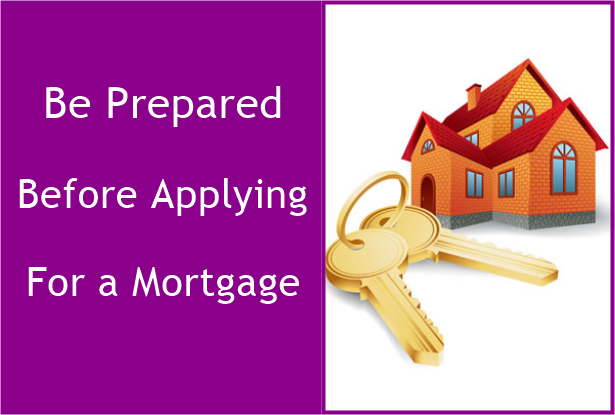I know how exciting shopping for a new home can be. Your mind begins creating a wish list of all of these things that you want in your next home. Maybe you want a low maintenance townhouse. Or maybe this time you want a 3 bedroom detached house with a 2 car garage and a huge back yard for your kids and pets to run around in. You start to dream about what the kitchen will look like and how big the bathrooms will be. Will you look for a place with hardwood floors and a beautiful fireplace? The list goes on and on. But before you continue creating your wish list it is important to figure out exactly how much you can afford to spend and how big of a mortgage you will qualify for. And to apply for a new mortgage there are a number of things you should get ready before you even speak to a mortgage broker.
Here is a list of things you should do before you apply for a mortgage:
Pull Your Credit Score
Pull your credit score so that you know exactly what your score is. This way you will avoid any unnecessary surprises when the mortgage broker pulls your report. As well, this will give you an opportunity to review your report for any mistakes that may be dragging down your credit score.
Pay Down Your Current Debt
The less debt you have and the higher credit score you have the better interest rate you will receive with your new mortgage. If you currently carry credit card debt make a plan to either reduce that by a significant amount, or if possible, pay it all off before you apply for a new mortgage.
Current Assets And Documents
On your mortgage application you may be asked to list your other assets, including investments, other property, vehicles, and so on. To make it easier on yourself, grab any documentation that you have for those items and make a list of those items and their current value.
Have Your Last 2 Years of Tax Returns Handy
Be prepared to show your mortgage broker a copy of your tax returns for the past 2 years to verify your level of income before and after taxes.
Other Financial Documents
Some of the other financial documents that you will want to have readily available are your current paystubs, bank statements for the previous 2 months, and any separation, divorce or bankruptcy statements. As well, if you are making any support payments, you will need to identify those amounts.
Save For The Largest Down Payment Possible
One of the most important things you should do before you even approach a mortgage broker is to save as much money as you can for the down payment on your new home. Even if you are only required to put down 10% to qualify, it is in your best interest to put down at least 25%.
You will feel a lot more comfortable in your home knowing that you have at least 25% equity instead of 10%, or heaven forbid, even less then that. If you can put down 30%, that would be even better.
Upfront Costs
Paying for the home is just one of the expenses you will incur when you buy a new home. Other expenses that you need to have money saved and set aside for are a home inspection, moving costs and closing costs (including legal fees).
As well you will want to have money set aside for immediate renovations or updates that you may need to do as soon as you move in.
If the home is older it may need some upgrades.
If the home is brand new you may need to do the landscaping.
All of that adds up quickly.
Create A Personal Budget
One of the things that many people forget to do when they consider buying a new home is to create a budget to see exactly what they can afford.
Create a budget based on your current income. Then add in all of the expenses that you will incur both on a monthly basis and an annual basis if you buy a new home.
As you create your budget use online mortgage tools to help you determine exactly what size of a mortgage you can honestly afford, and still live a comfortable life.
You see if you just head in to see a broker they will often do a few quick calculations and typically come up with a high number that may in fact result in a very tight budget for you later on.
But if you have done all of your homework you will already know if what they offer you is too high or well within your comfort zone.
When buying a new home, always stay within your comfort zone. This is not the time to take risks or to over-extend yourself. And always do your homework before you call a mortgage broker and before you start looking at new homes. You want your decision to be based on your financial situation, instead of big backyards and pretty kitchens.





